 Mysteries
Mysteries  Mysteries
Mysteries  History
History 10 Surprising Stories About the Texas Rangers
 Humans
Humans 10 Philosophers Who Were Driven Mad by Their Own Theories
 Miscellaneous
Miscellaneous 10 Video-Game-Worthy Weapons and Armors from History
 Weird Stuff
Weird Stuff 10 Psychics Who Accurately Predicted Wartime Events
 The Arts
The Arts 10 Pieces of Art Inspired by a Broken Heart
 Health
Health 10 Science Fiction-Sounding New Medical Treatments
 History
History 10 Surprising Facts About the Father of Submarine Warfare
 Space
Space Ten Astonishing New Insights into Alien Worlds
 Weird Stuff
Weird Stuff 10 Bizarre Summer Solstice Rituals Still Practiced Today
 Mysteries
Mysteries Top 10 Haunting Facts About the Ghost Ship MV Alta
 History
History 10 Surprising Stories About the Texas Rangers
 Humans
Humans 10 Philosophers Who Were Driven Mad by Their Own Theories
Who's Behind Listverse?

Jamie Frater
Head Editor
Jamie founded Listverse due to an insatiable desire to share fascinating, obscure, and bizarre facts. He has been a guest speaker on numerous national radio and television stations and is a five time published author.
More About Us Miscellaneous
Miscellaneous 10 Video-Game-Worthy Weapons and Armors from History
 Weird Stuff
Weird Stuff 10 Psychics Who Accurately Predicted Wartime Events
 The Arts
The Arts 10 Pieces of Art Inspired by a Broken Heart
 Health
Health 10 Science Fiction-Sounding New Medical Treatments
 History
History 10 Surprising Facts About the Father of Submarine Warfare
 Space
Space Ten Astonishing New Insights into Alien Worlds
 Weird Stuff
Weird Stuff 10 Bizarre Summer Solstice Rituals Still Practiced Today
10 Eerie Items of Clothing from the Past
Fashion is a product of its time. Centuries from now, people are going to look back on us and wonder why we strangled ourselves with neckties, just like we can look back on the past and wonder why they wore nightmare fuel.
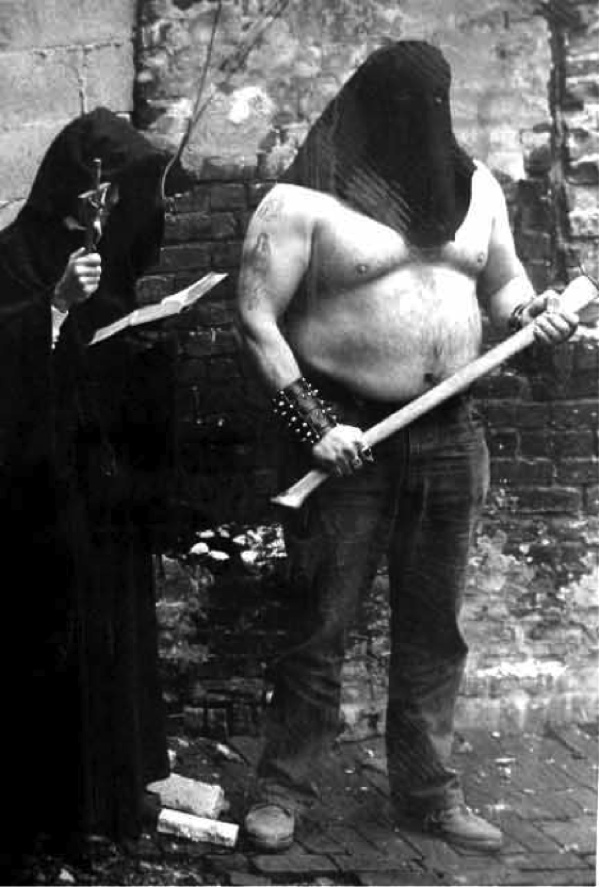
When we think of an executioner, that’s what we picture—a brute in a mask. The image is so iconic that it continues to show up in pop culture long after we stopped beheading the condemned. How many of us have seen a movie or played a video game where a masked executioner lumbers after our hero?
Contrary to popular belief, the hood was far from common. But we can’t blame those who chose to wear it, as executioners often found themselves shunned by society. Think about it—would you want to go out for a beer with a guy who lops heads off for a living? Maybe all those lumbering masked villains we see today are just running after our heroes because they want someone to hang out with.
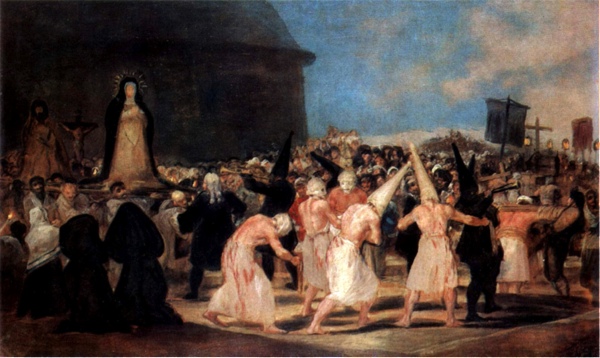

The capirote look creepy and uncomfortable, but that’s the point. It was often worn by Spanish flagellants, religious extremists who whipped themselves as a demonstration of piety, or maybe they were just into that sort of thing.
It was also used for grimmer purposes: prisoners sentenced to death would wear the capirote, and people condemned by the Inquisition would be forced to wear them in public to make them targets of humiliation. It doesn’t look as scary when you know who had to wear it, but now we’re scared about the prospect of having one forced on us.
The capirote’s bad reputation has lasted to the present day, as it served as the inspiration for the costumes worn by the KKK. Not seeing it? The modern picture above of Spanish priests should make it obvious.
Great, so not only are the KKK racist, they’re plagiarists, too. Maybe we can bring back the public humiliation thing.
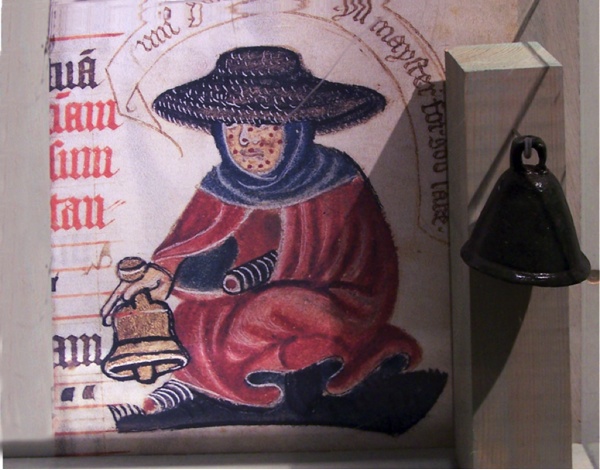
Lepers had it rough. Forced to wear special clothes and ring bells as they walked, they were all but guaranteed to be shunned by society. Oh, and then there was the whole “having leprosy” thing, which kind of sucked.
Their clothing, while maybe not scary in its own right, has grown to become associated with death and disease to the point where we’d cross the street if we saw someone coming towards us in that getup. It’s an unfair association—leprosy was a misunderstood disease, and many “lepers” were actually suffering from eczema, smallpox or other ailments. Plus, leprosy was seen by many as a curse from God, which makes it tricky to get into someone’s good books. That being said, we’d still avoid anyone dressed like that out of instinct.
Leper colonies still exist in places where the disease can’t be easily treated, although they no longer have to wear the outfit. Maybe we can bring the clothes back for people who have a cold, so we know not to sit next to them on the bus?
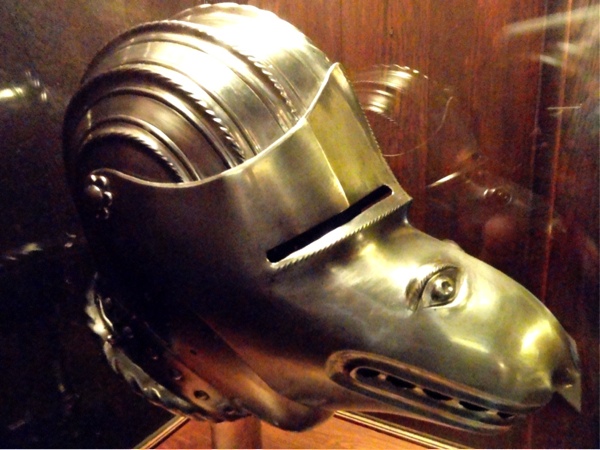
Yikes! It looks like the mutant offspring of a dog and an alligator that’s out for blood. Medieval warfare was horrific enough as it is—did they really need to dress up as abominations of nature while they were hacking each other to bits?
Thankfully, no. It’s believed that these were mostly worn during parades and festivals, because nothing says fun and frivolity like an unblinking metal demon head. Some of the visors were meant to be comical caricatures of the man behind the mask, but those ended up looking even more terrifying.
Good lord. We understand why they weren’t worn in battle, because that extra weight couldn’t have been helpful. But don’t tell us you wouldn’t drop your weapon and flee if you saw this guy marching towards you across the battlefield. That’s a mask a highwayman would wear to freak out their victims. Or, more likely, a murderer.
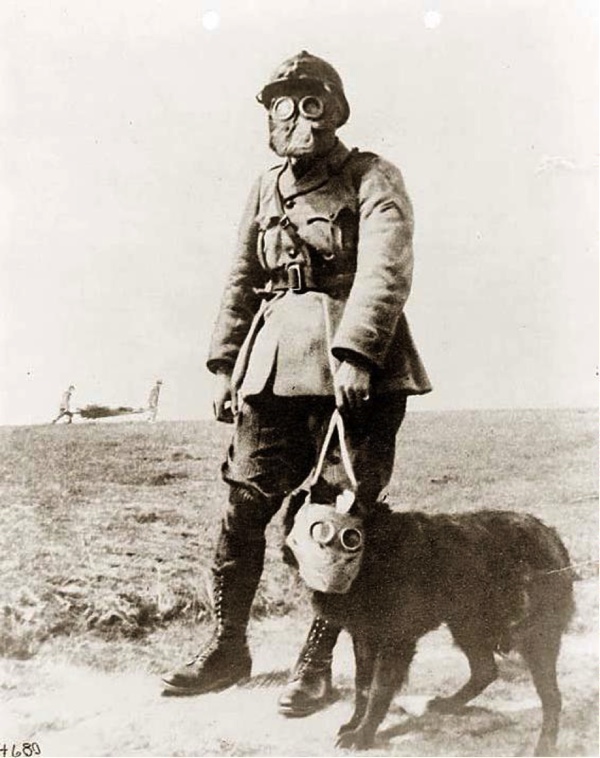
Gas masks have always been considered creepy (again, how many times have you seen them in a scary piece of pop culture?) but there’s something about their earliest incarnations that makes them even worse. Not only are they associated with the horrors of World War I, but they hadn’t exactly perfected the technology yet. It was the first time in history where gas masks were mass produced, and it couldn’t have been comforting to head to the front lines in what was basically a prototype.
Since animals were commonly used on the front, gas masks had to be developed for our furry friends as well. As you can imagine, the animals weren’t thrilled about this.
Just imagine a masked soldier riding into battle on a masked horse through a haze of poisonous gas. Is it any wonder these masks developed their macabre reputation?

Some people find traditional monk robes creepy, which is a bit ironic considering their simplicity is supposed to represent piety and modesty. Maybe it’s the monks’ solemn chants that gave the robes a bad rep, or maybe it was the killer monk from The Da Vinci Code. Whatever the reason, the switch to informal dress probably helped conversion rates.
We suppose it’s all about context. It’s one thing to see a friendly old man wearing these robes in broad daylight, but it’s something entirely different to spy someone with a hidden face roaming through the darkness.
Yeah, okay, that’s a little off-putting. Back in the day that man would have looked normal, but if we ran into him in a dark alley our first thought wouldn’t be that he was looking to spread the good word.
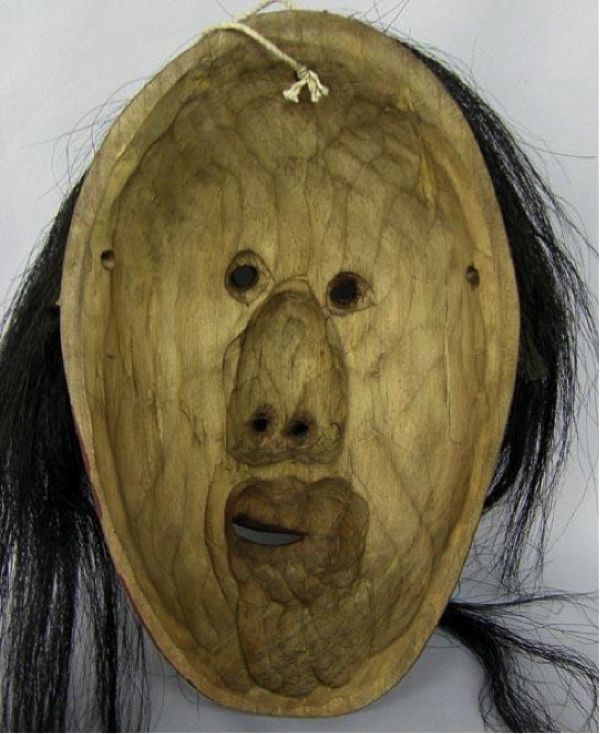
Yeah, there’s no way the clothes worn by something called the False Face Society aren’t terrifying. Don’t worry, they’re not a band of psychos forcing people to re-enact Face/Off; it’s an Iroquois medicinal society. The masks are worn during healing rituals, presumably with the intent of scaring the disease out of the patient.
The more you know about the masks, the eerier they get—they’re carved from live trees in the belief that they represent a living spirit, so in a sense they’re literally putting someone else’s face on. We’d tell you more, but knowledge of the masks is secretive, which again, is creepy. Many Iroquois argue against the sale or exhibition of False Face masks, and some even believe that information about the Society shouldn’t be spread to the general public. That essentially makes it a secret society, and when are those not unnerving?
If all the masks look like that, we’re okay with them being secretive.
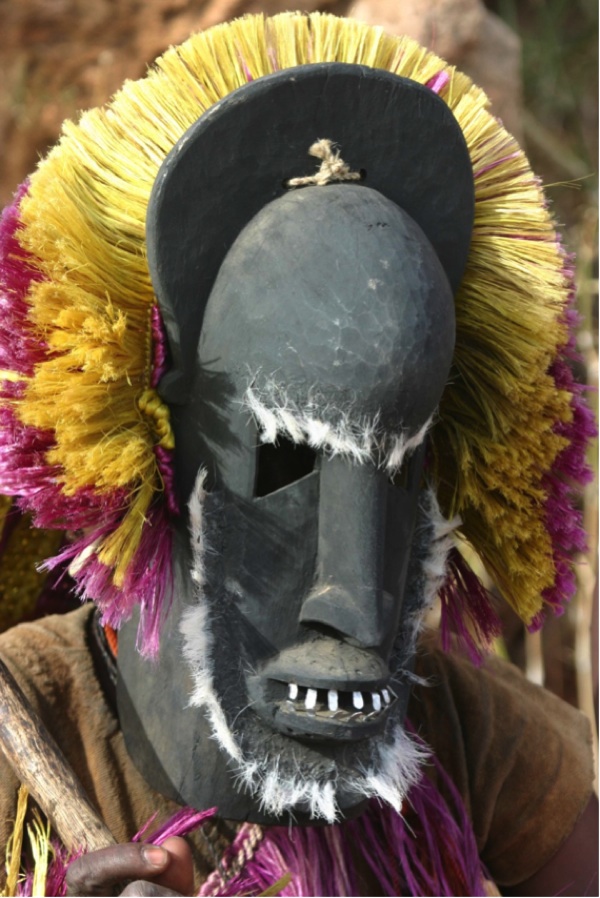
Africa is a continent rich in history, culture and creepy masks, apparently. We don’t mean to make light of their social and religious role, but anyone wearing one of those outside of a ceremony is probably a serial killer.
It’s pretty easy to buy an African mask in today’s world, but in older times mask making was a skill that carried prestige—only true artisans could make a mask capable of giving us nightmares from across generations. They vary wildly in style across the continent, with different societal and spiritual meanings based on regional beliefs, but they all share the ability to give us the willies.
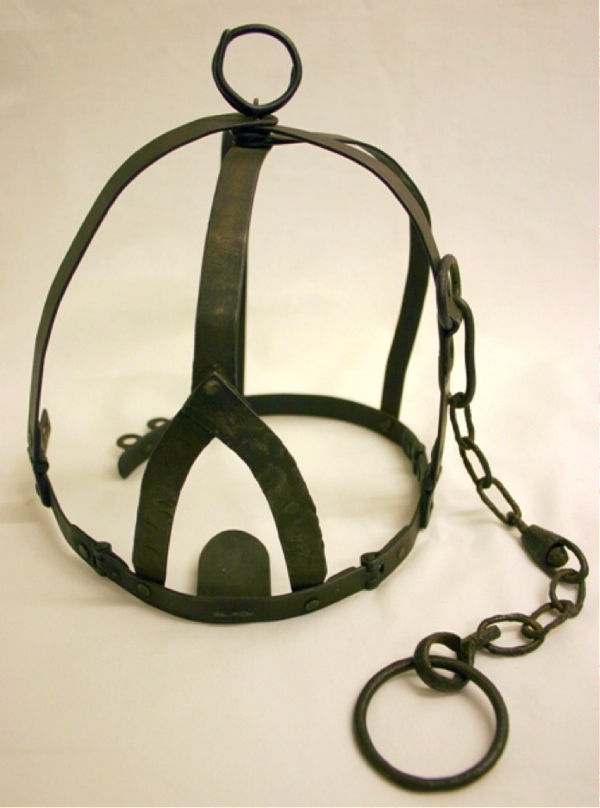
Either you’re trying to figure out what part of the body that goes on (it’s the head), or you’re wondering why anyone would voluntarily wear an upside down metal jock strap outside of the confines of a BDSM club. Well, much like what happens to some people within the confines of said club, wearing this wasn’t voluntary.
It’s a medieval humiliation device, mostly used on women accused of anything from witchcraft to just being loud and annoying. The chain allowed men, sometimes the husband of the scold, to lead them through town to be beaten and humiliated. Personally, we’d recommend marriage counseling instead.
The wearer’s tongue was pressed down with a spiked plate, making speaking and eating impossible. As disturbed as we are by the prospect of having to wear one of these, we’d be just as worried by the site of one on someone else, too. Aside from looking weird, it sends a pretty clear message about local justice.
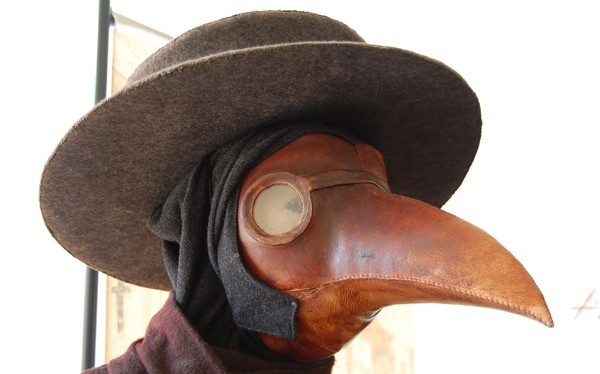 Plague doctors wore this uniform in the belief that it would protect them while they tended to their patients. But we don’t care what your doctor tells you—anyone wearing that mask is plotting to kill you. We’d rather take our chances with the plague than be treated by a freakish bird/human hybrid. And we’re not the only ones scared by it—it terrified people of the era as well. Aside from the obvious freaky factor, seeing one of these dudes stroll into town was a sign that the body count was about to get a lot higher.
Plague doctors wore this uniform in the belief that it would protect them while they tended to their patients. But we don’t care what your doctor tells you—anyone wearing that mask is plotting to kill you. We’d rather take our chances with the plague than be treated by a freakish bird/human hybrid. And we’re not the only ones scared by it—it terrified people of the era as well. Aside from the obvious freaky factor, seeing one of these dudes stroll into town was a sign that the body count was about to get a lot higher.
There is a reason they’re wearing a bird mask, and it’s not because they’re proto-cosplayers. The beak would be filled with sweet flowers or herbs such as lavender and mint, in the belief that foul smells were one of the ways the plague was transmitted. This was known as the miasma theory of disease, which in today’s scientific community has about as much credibility as the flat earth theory.
Ironically though, the plague costume did help, although not for the reason doctors thought. The thick leather jacket kept diseased fleas and rats out, and prevented plague victims from making physical contact. So if there’s ever a zombie apocalypse, throw on one of these bad boys and you’re good to go.
You can read more from Mark, and see him dressed like a leper, at his website.








